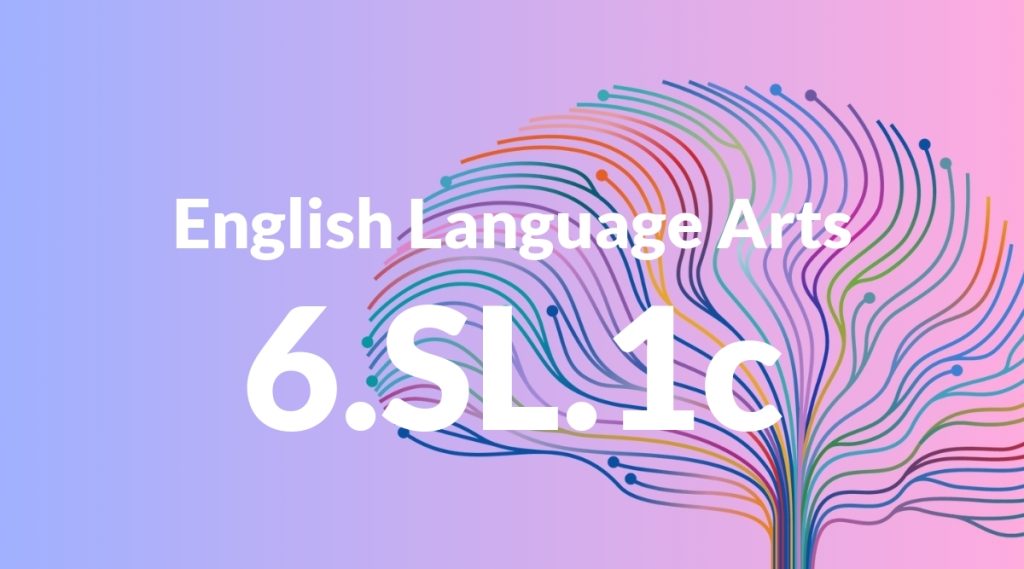Standard: 6.SL.1c – Pose and respond to specific questions with elaboration and detail by making comments that contribute to the topic, text, or issue under discussion.
Grade level: Grade 6
Subject: English Language Arts
Domain: Speaking & Listening
Teacher Overview
This standard focuses on enhancing students’ abilities to participate actively in discussions by posing and responding to questions with relevant and detailed comments. It is crucial for developing critical thinking and effective communication skills, which are essential across all subjects and in real-life scenarios. Students should have foundational skills in identifying main ideas and details and be comfortable asking and answering basic questions about texts.
Mastering this standard will enable students to engage in more sophisticated discussions, where they can synthesize information and present well-reasoned arguments.
Common Misconception 1
Some students may think that any comment they make is useful, even if it is off-topic. This is incorrect because irrelevant comments can derail the discussion and confuse other participants.
Intervention 1
Encourage students to use sentence starters that link their comments to the topic, such as ‘Based on what we read…’ or ‘I think this relates to…’.
Common Misconception 2
Another common misconception is that responses to questions don’t need to be detailed. This is incorrect because detailed responses provide clarity and depth, facilitating a richer discussion.
Intervention 2
Practice sessions where students are prompted to elaborate on their answers can help. Use prompts like ‘Can you explain further?’ or ‘Why do you think that?’
Prerequisite Knowledge
Students should be able to understand and identify the main idea and key details in a text, and have basic skills in asking and answering questions based on the text.
Subsequent Knowledge
Students will develop advanced discussion skills, including the ability to synthesize information from multiple sources and present coherent arguments in discussions.
Instructional Activities
- Role-playing different discussion scenarios
- Fishbowl discussions where students take turns speaking
- Using graphic organizers to plan responses
- Peer feedback sessions
- Interactive read-alouds with guided questioning




